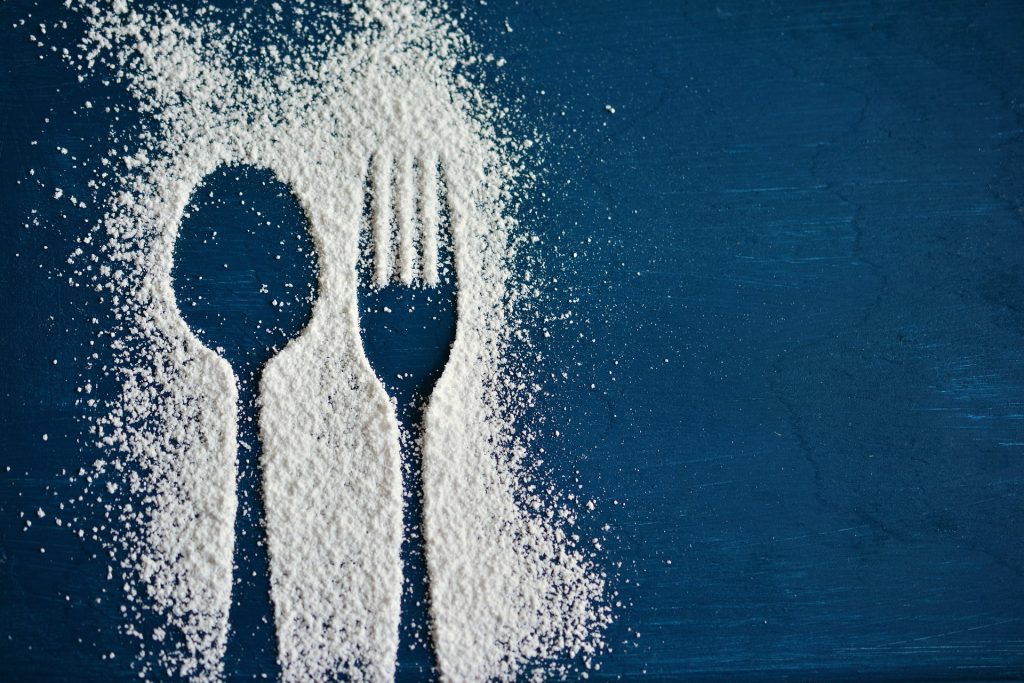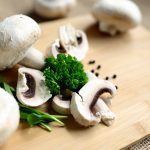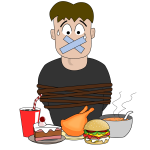
Healthy eating refers to the practice of consuming a well-balanced diet consisting of carbohydrates, proteins, fats, fiber, vitamins, and minerals. A healthy diet can help you feel better, have more energy, improve overall health, boost your immune system, live longer, and improve your mood. Small long-term changes can add up over time and lead to significant improvements in health. Each one of us has different dietary patterns depending on our physical and mental needs and well-being. Thus, there are clashing nutritional and diet-based advice ranging from one extreme to another. However here, we will discuss some fundamental eating habits that are healthy and beneficial for every individual.

1. Chewing your food properly-
Chewing food properly is an important part of our digestive health. But we don’t pay much attention to it. Eating while distracted, such as watching TV or talking on the phone, can lead to binge eating and poor chewing. Mindful eating involves paying attention to your sensory experiences with food, including its taste, texture, and smell. Eat in a quiet and peaceful environment and focus on your meal during meal times. Chew each bite at least 20-30 times before swallowing. Close your mouth to prevent air from being swallowed, which can lead to bloating and digestive disorders. When eating a large meal, take breaks between bites to promote better digestion. If you chew your food slowly, your body will send satiety signals to stop eating when you’re full. Overeating can lead to digestive problems and weight gain. Chewing promotes the production of saliva, which neutralizes the acid that causes tooth decay. Chewing also helps improve overall dental health by strengthening the jaw muscles. Chewing your food well allows your body to absorb more nutrients from your food. If you don’t chew your food well, it doesn’t break down completely and passes through your digestive tract unabsorbed, leading to nutritional deficiencies. Also, the digestive enzymes of the saliva is released when you chew your food properly which helps in the breakdown of carbohydrates and fats in the mouth.
2. Knowing your carbohydrates- Just like fats, not all carbohydrates are bad for our body. Our body needs energy to perform various activities and carbohydrates are the main source of energy for our body. Carbohydrates are divided into two categories i.e., simple carbohydrates and complex carbohydrates. Simple carbohydrates, also called monosaccharides, are made up of one or two sugar molecules and are easily broken down by the body for quick energy and and are commonly found in foods such as fruits, honey, and sweets. It is useful for athletes who need a quick source of energy during strenuous physical activity. Complex carbohydrates, on the other hand, are made up of long chains of sugar molecules that take longer to break down, thus providing a sustained source of energy and are found in foods such as whole grains, legumes and vegetables. They are also rich in fiber, which regulates digestion and keeps you feeling full longer. Choosing the right type of carbohydrates is key to maintaining a healthy diet. Eating too many simple carbs can cause your blood sugar to rise quickly, which can harm your body over time. Complex carbohydrates, on the other hand, provide a constant source of energy and are an important part of a healthy diet.
3. Cut down on processed food- Processed foods are foods that have been changed from their original state by various methods of mechanical, physical or chemical alteration. Processed foods are loaded with refined ingredients like white flour (maida), white sugar, white salt (in excess). They are also packed with artificial chemicals, preservatives and taste enhancers. An easy way to detect if a food is processed is to read the ingredient list and look for words you have trouble to pronouncing. These foods cause weight gain due to overeating because they contain high levels of sugars, fats and salt which make them tasty, convenient and addictive. They are also known to increase appetite. These contain empty calories which which in the long run, can lead to chronic diseases like type-2 diabetes, heart diseases, obesity. They are low in essential nutrients and fiber, so it is difficult to digest and assimilate. If you suddenly reduce the intake of processed foods, you may experience withdrawal symptoms like fatigue and irritability when you are used to them, so ditch them slowly. When you switch from processed foods to unprocessed whole foods, you tend to have better bowel movements, skin, hair, immunity and overall better health. Look for foods with short ingredient lists and avoid products with added sugar, artificial colors and preservatives. Cook at home with fresh ingredients. Avoid sugary drinks. Avoid ready-to-eat foods such as frozen foods and prepackaged foods.
4. Not omitting sugars completely- Ourbrains constantly use sugar (mainly glucose) tomeet our energy needs, so there is no need to eliminate sugar from your diet. But too much sugar/glucose is also bad. Bring your intakeof added sugars (extra added to foods) to zero. These added sugars can contribute to weight gain and other health problems.Instead, add natural sugars, such as fruits, to get your daily dose of sugar,plus vitamins and minerals. Sugar is known to increase the production of serotonin, a neurotransmitter that regulates mood. If you cut out sugaraltogether, you may experience mood swings and irritability. Cuttingout sugar completely can lead to cravings that arehard to resist. This can lead to binge eating or overeating, which can negatively impact your health goals. Labeling sugary foods as “good” or “bad” can lead to an unhealthy relationship with foodand can leadto disordered eating patterns. So limit your sugar intake, but don’t cut it out completely.
Remember, eating healthy doesn’t mean being perfect or following a strict set of rules. Follow these simple tips along with a routine that fits you and your lifestyle.
‘XOX’
-TriGr







